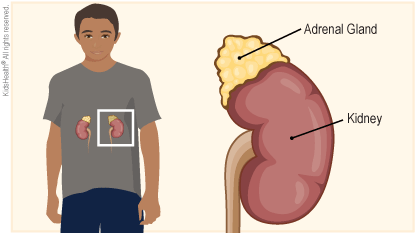- Home
- Humana Medicaid
- Kentucky Medicaid
- Medicaid extras
- Health and wellness
- Home
- Parents Home
- Allergy Center
- Asthma Center
- Cancer Center
- Diabetes Center
- A to Z Dictionary
- Emotions & Behavior
- First Aid & Safety
- Food Allergy Center
- General Health
- Growth & Development
- Flu Center
- Heart Health
- Homework Help Center
- Infections
- Diseases & Conditions
- Nutrition & Fitness Center
- Play & Learn Center
- School & Family Life
- Pregnancy Center
- Newborn Center
- Q&A
- Recipes
- Sports Medicine Center
- Doctors & Hospitals
- Videos
- Para Padres
- Home
- Kids Home
- Asthma Center
- Cancer Center
- Movies & More
- Diabetes Center
- Getting Help
- Feelings
- Puberty & Growing Up
- Health Problems of Grown-Ups
- Health Problems
- Homework Center
- How the Body Works
- Illnesses & Injuries
- Nutrition & Fitness Center
- Recipes & Cooking
- Staying Healthy
- Stay Safe Center
- Relax & Unwind Center
- Q&A
- Heart Center
- Videos
- Staying Safe
- Kids' Medical Dictionary
- Para Niños
- Home
- Teens Home
- Asthma Center
- Be Your Best Self Center
- Cancer Center
- Diabetes Center
- Diseases & Conditions
- Drugs & Alcohol
- Expert Answers (Q&A)
- Flu Center
- Homework Help Center
- Infections
- Managing Your Medical Care
- Managing Your Weight
- Nutrition & Fitness Center
- Recipes
- Safety & First Aid
- School & Work
- Sexual Health
- Sports Center
- Stress & Coping Center
- Videos
- Your Body
- Your Mind
- Para Adolescentes
Adrenal Insufficiency
What Is Adrenal Insufficiency?
Adrenal insufficiency happens when the adrenal glands make fewer hormones than they should. This can cause:
- weakness
- tiredness
- belly pain
- loss of appetite
- nausea
- dehydration
- skin changes
Some people with adrenal insufficiency have no symptoms unless they're exposed to stress.
What Are the Adrenal Glands?
There are two adrenal (eh-DREE-nul) glands, which sit above the kidneys. They make important hormones that:
- help the body handle stress
- control blood pressure
- balance salt levels

What Causes Adrenal Insufficiency?
There are two types of adrenal insufficiency:
- In primary adrenal insufficiency, the adrenal glands either are damaged or have a genetic problem. They don't make enough of the hormone cortisol. Sometimes, they also don't make enough of the hormone aldosterone, which helps control salt balance in the body.
- In central adrenal insufficiency, the in the brain doesn't make enough of adrenocorticotropic hormone (ACTH), which triggers cortisol production in the adrenal glands.
There's also a temporary type of adrenal insufficiency. This can happen if someone is being treated with high doses of cortisol-like medicines, such as prednisone, and the medicine is suddenly decreased or stopped.
How Is Adrenal Insufficiency Diagnosed?
Doctors diagnose adrenal insufficiency with blood tests to check hormone levels. They also might order:
- an ACTH stimulation test to see how the body responds to an injection of adrenocorticotropic hormone
- magnetic resonance imaging (MRI) to check the size and shape of the pituitary gland
How Is Adrenal Insufficiency Treated?
Doctors treat adrenal insufficiency by giving replacement hormones. They might prescribe:
- a corticosteroid taken by mouth several times a day to replace
- a medicine called fludrocortisone taken by mouth to replace and balance the body's levels of salt and fluids
Corticosteroid doses often need to increase during times of illness or stress.
What Is an Adrenal Crisis?
Sometimes, symptoms can suddenly become much worse, usually when someone is stressed by illness or injury. This is called an adrenal crisis. It needs medical treatment right away. Someone having an adrenal crisis needs to go to the hospital for IV (given into a vein) fluids and further doses of corticosteroids.
Signs of an adrenal crisis can include:
- vomiting
- belly pain
- severe weakness
- sweating a lot
- confusion
- loss of consciousness
Kids and teens with adrenal insufficiency should:
- always wear a medical alert ID
- always have injectable steroid with them and all caregivers should learn how to use it
When Should I Call 911?
If your child shows signs of an adrenal crisis, give the injectable steroid and call 911 right away.
When Should I Call the Doctor?
Call the doctor if your child:

© 1995- The Nemours Foundation. KidsHealth® is a registered trademark of The Nemours Foundation. All rights reserved.
Images sourced by The Nemours Foundation and Getty Images.